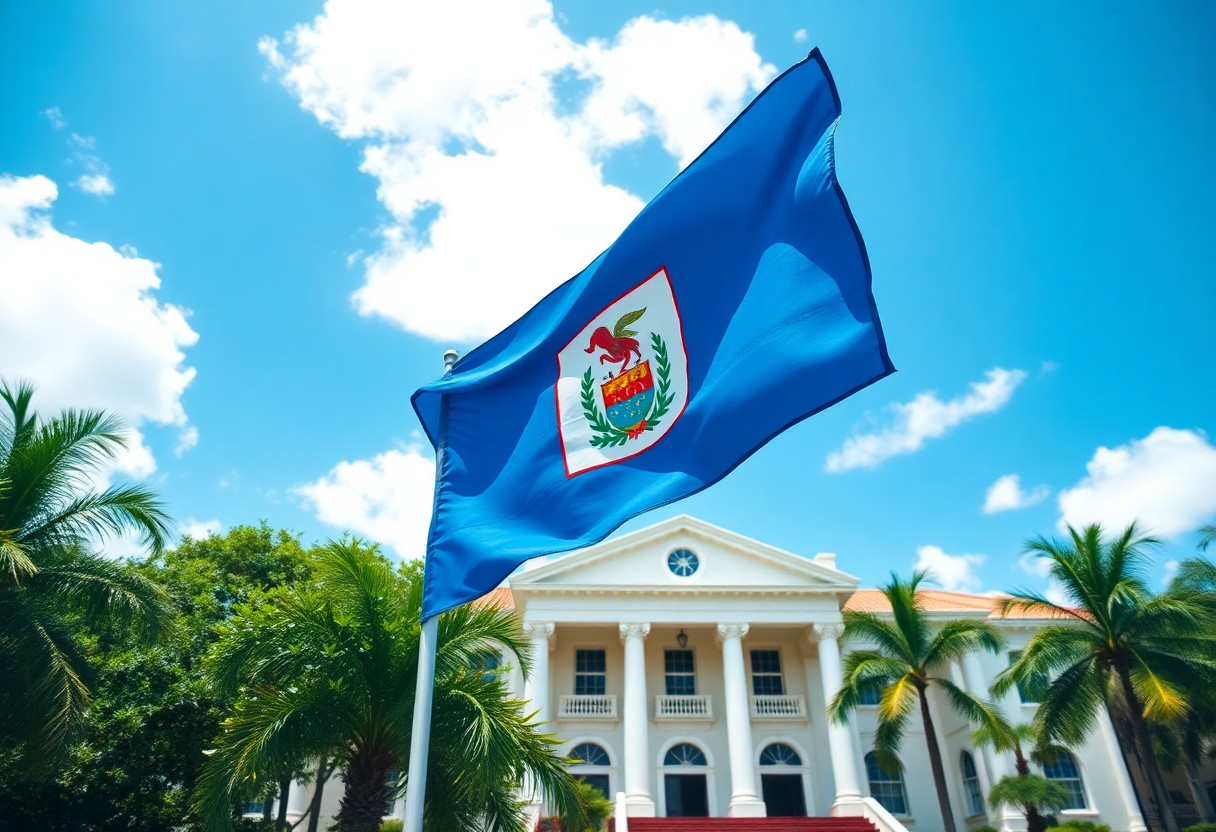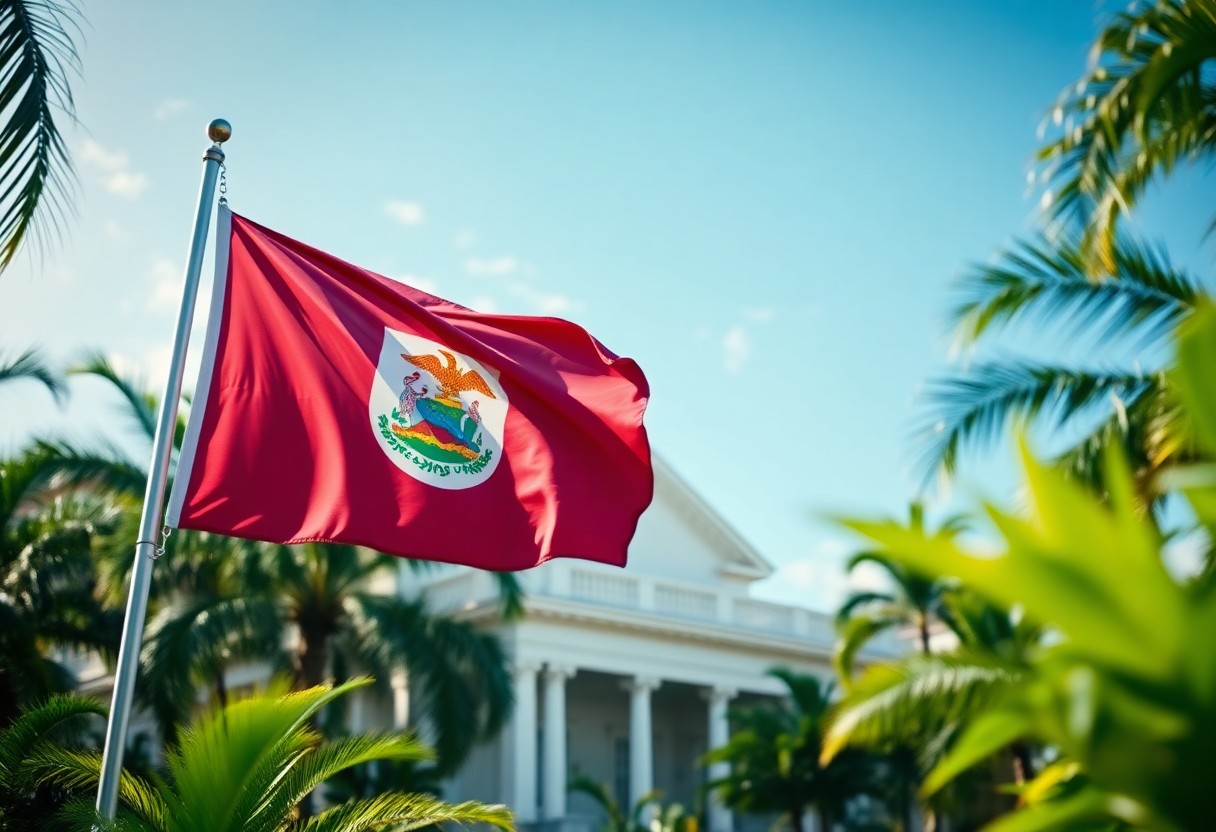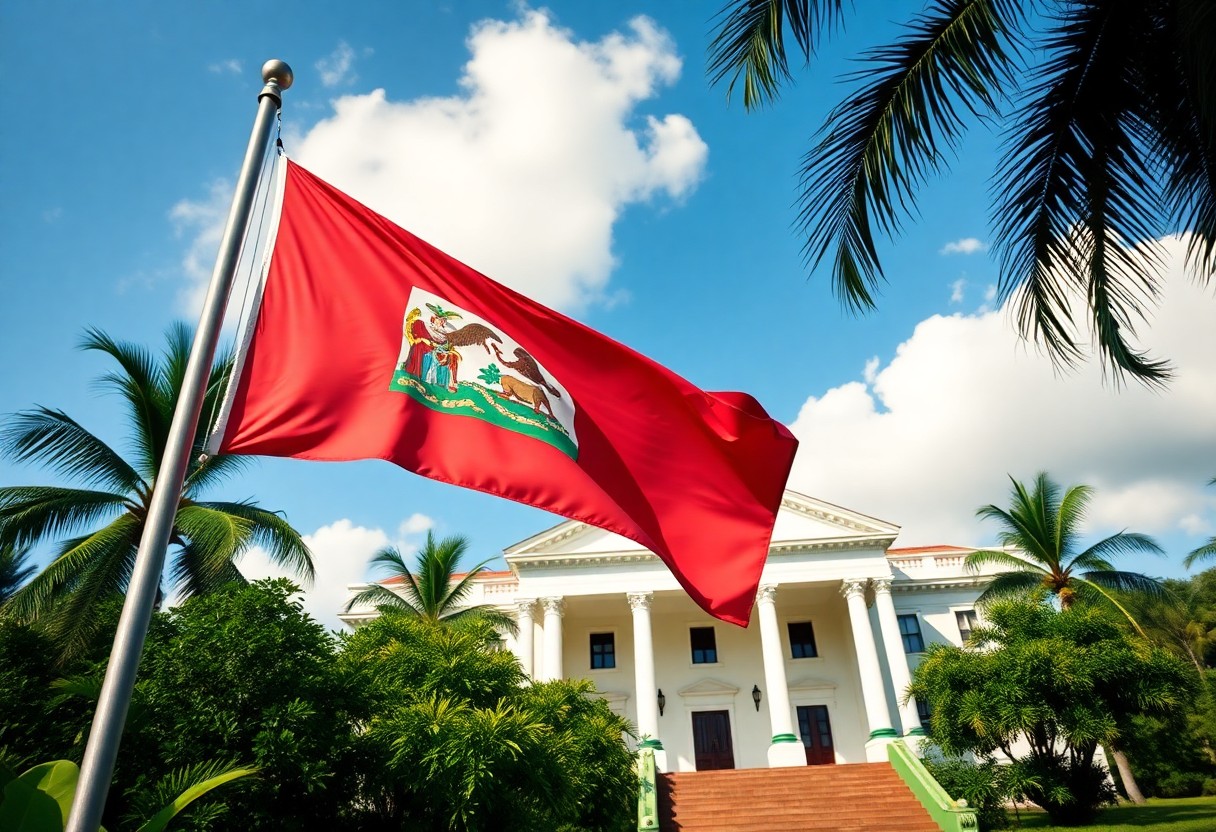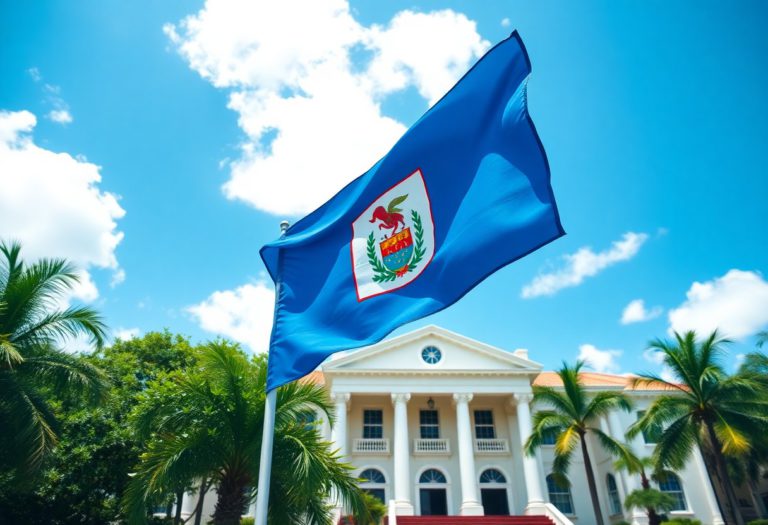Unveiling the Historical Journey of Belize’s Fight for Independence is crucial for grasping the profound essence of Belizean identity and its captivating past. This article will meticulously explore the significant historical milestones that paved the nation’s challenging road to achieving sovereignty. It will highlight the enduring struggles against colonial domination, the critical treaties that were negotiated, and the significant event of self-rule accomplished in 1981. These landmark historical moments not only underscore the resolve and fortitude of the Belizean people but also illustrate the transformative changes that culminated in the establishment of a democratic Belize. Join us as we examine the pivotal milestones that define the national identity of Belize today.

Unearthing the Rich Pre-Colonial History of Belize
Before the European colonizers set foot in Belize, the pre-colonial period was characterized by a vibrant tapestry of diverse indigenous cultures and rich histories. Numerous indigenous groups thrived across the region, with the Maya civilization being the most prominent. These societies developed intricate social structures, advanced agricultural methods, and extensive trade networks, showcasing exceptional achievements for their time. The cultural legacy from this era serves as a fundamental cornerstone for Belize’s modern identity, influencing the trajectory of subsequent historical events that unfolded in the region. This rich pre-colonial history is essential for understanding the cultural foundations of contemporary Belize.
Examining the Exceptional Contributions of Maya Civilizations
A comprehensive investigation of pre-colonial Belize necessitates a focus on the remarkable contributions made by the Maya civilizations. These ancient societies did not merely exist; they thrived in various fields, including architecture, astronomy, and agriculture. Visitors and locals alike can marvel at breathtaking archaeological sites like Caracol and Lamanai, which stand as enduring testaments to the Maya’s sophisticated lifestyle. These ruins not only exhibit their profound understanding of urban planning and natural sciences but also reflect their innovative spirit and extraordinary accomplishments that resonate through Belize’s cultural heritage. Appreciating these contributions is vital for recognizing the roots of Belizean identity.
Celebrating Belize’s Diverse Cultural Heritage
At the core of Belize’s identity lies a rich and intricate cultural heritage. This vibrant mosaic is woven from the complex interactions among indigenous, African, and European influences that have collectively shaped modern Belizean society. The diversity inherent in this heritage is vividly illustrated through the multitude of languages, customs, and traditions that enrich the daily lives of Belizeans, cultivating a unique cultural landscape celebrated by its people. The architectural achievements of the Maya, combined with their agricultural innovations, continue to echo within contemporary Belize. Moreover, the African and Creole heritages have significantly contributed to Belize’s artistic expressions, musical traditions, and culinary delights, fostering a deep sense of belonging and pride among Belizeans while serving as a poignant reminder of the historical challenges faced by these diverse communities throughout the nation’s journey.
Understanding the Era of British Honduras and Its Historical Importance
The period during which Belize was known as British Honduras represents a crucial chapter marked by British colonial governance. Spanning from the 18th century into the mid-20th century, this era saw the emergence of a distinctive cultural identity heavily shaped by British rule, economic activities, and local resistance movements. During this time, significant political and administrative transformations took place, ultimately establishing the groundwork for Belize’s unwavering quest for independence. Understanding this context is essential for appreciating the complexities of Belize’s path to self-determination.
In-Depth Overview of British Colonial Rule in Belize
Following its formal designation as a British colony in 1862, British Honduras underwent substantial changes, including the introduction of the British legal system and the establishment of critical infrastructure. Over the years, the colony faced considerable opposition from its inhabitants, exemplified by the notable labor riots of 1934, which galvanized support among the Belizean populace for self-governance. These pivotal events are essential for grasping the dynamics of Belize’s struggle for independence and the resistance against colonial authority.
The Lasting Impact of British Colonial Rule on Belizean Society
Above all, the influence of British colonial rule has profoundly shaped various facets of Belizean society and governance structures. The establishment of the English language, along with legal systems and educational institutions, played a crucial role in modernizing the nation. While this relationship posed challenges, it also laid the essential foundations for the democratic governance that Belize enjoys today. Furthermore, the legacy of British colonial rule is evident in numerous aspects of contemporary Belizean society. The English language remains the official language, facilitating communication both locally and internationally. Additionally, the legal and governance frameworks established during the colonial period have provided a basis for Belize’s current legal system. However, it is vital to acknowledge that this influence was accompanied by the exploitation of resources and cultural imposition, which have had lasting effects on Belizean demographics and national identity. Gaining insight into these complex dynamics is crucial for understanding Belize’s intricate journey toward independence.

Mapping the Pivotal Journey to Independence for Belize
Any discussion regarding Belize’s path to independence must recognize the significant events that laid the groundwork for this historic transformation. The journey to freedom involved responding to colonial pressures, fostering a growing sense of nationalism, and advocating for increased self-determination among the Belizean populace. The mid-20th century marked a period of heightened political activism, which diligently established the foundation for Belize’s eventual liberation from British colonial control. Understanding this activism is essential for appreciating the evolution of Belize’s political landscape.
Recognizing the Influential Leaders of Belize’s Independence Movement
Prominent historical milestones along Belize’s path to independence feature influential leaders such as George Cadle Price. By acknowledging their leadership and vision, one can appreciate how these figures rallied public support for self-governance, significantly affecting the nation’s future identity and direction. Their contributions were pivotal in mobilizing the Belizean populace toward achieving autonomy and self-determination.
Engaging in Critical Negotiations for Self-Governance
During the crucial discussions surrounding self-governance, representatives of the Belizean populace emerged as vital figures, proposing transformative strategies that would reshape the course of history. With a proactive and determined approach, Belizean leaders actively engaged in dialogues with British representatives regarding self-governance. These negotiations represented a pivotal turning point, as Belize sought to assert its autonomy in managing its own affairs. The formation of political parties and organized movements played a crucial role in articulating the demands for change from the Belizean populace. As tensions escalated, the negotiations grew increasingly intense, reflecting the urgency felt by Belizeans for greater autonomy. This critical period culminated in various constitutional amendments, setting the stage for Belize’s eventual independence from colonial oversight.
Significant Milestones That Defined Belize’s Path to Independence
A multitude of important milestones characterized Belize’s challenging journey to independence. From early legislative initiatives to pivotal events, each moment played a critical role in the quest for self-determination. As you review these milestones, you will gain a deeper appreciation for their profound impact on the nation’s identity and the ongoing struggle for sovereignty.
Key Legislative Developments Leading to Self-Governance
One of the primary early legislative developments was the introduction of the Internal Security Act in 1961. This act established a framework for self-governance, allowing for a limited degree of autonomy in local governance matters. This crucial legislation marked a watershed moment, encouraging Belizeans to actively participate in political processes and advocate for further reforms. The act laid the groundwork for future advancements in Belize’s governance structure and political engagement.
Crucial Events from 1964 to 1981 that Shaped Belize’s Political Landscape
In the years leading up to Belize’s independence, significant events from 1964 to 1981 played a vital role in shaping the nation’s political landscape. These moments included the emergence of influential political leaders and nationalist movements, which laid the foundation for achieving self-governance. During this transformative period, numerous key events unfolded that contributed to Belize’s independence. The 1964 Elections marked the beginning of a new era of political engagement by expanding voting rights to a broader segment of the Belizean population. The 1969 Belize-Guatemala tensions further intensified calls for autonomy and unity among citizens. The 1973 Constitution established a more robust governance framework, granting additional rights and liberties to the populace. Ultimately, these developments, coupled with the declaration of independence in 1981, defined Belize’s trajectory toward establishing a national identity and self-governance.

Analyzing the Challenges and Developments in Post-Independence Belize
In the years following its independence in 1981, Belize encountered a series of challenges and opportunities in its pursuit of a cohesive national identity and effective governance. The nation undertook significant initiatives to establish a stable political environment while promoting economic growth and addressing pressing social issues. Efforts were directed toward enhancing infrastructure, education, and healthcare systems, all aimed at improving the quality of life for every Belizean in this young and evolving democracy. Understanding these developments provides insight into the ongoing evolution of Belizean society.
Understanding the Political Structure of Belize
The political framework is fundamental in determining the governance of Belize. You will find that the country operates as a parliamentary democracy with a clear separation of powers among the executive, legislative, and judicial branches. The Prime Minister leads the government, while the legislative body encompasses the House of Representatives and the Senate. This political system encourages regular elections and representation of diverse political perspectives, fostering active civic engagement among the populace. The framework ensures that citizens have a voice in the decision-making processes that affect their lives.
The Importance of Commonwealth Membership for Belize’s Growth
Upon achieving independence, Belize became a member of the Commonwealth of Nations, which has played a crucial role in fostering international relationships and support. This membership provides Belize with access to a network of countries that share similar democratic values, facilitating participation in collaborative initiatives across various sectors, including education and trade. A significant advantage of your Commonwealth membership is the opportunity to engage in discussions regarding regional issues that impact Belize. Participation in this organization enhances Belize’s global standing while also strengthening connections with other former British colonies. Additionally, you will find that Commonwealth nations frequently offer developmental assistance, which can be vital in addressing local challenges. However, this membership also entails a commitment to upholding democratic principles and human rights, ensuring that Belize continues to grow as a respected member of the international community.
Addressing the Current Challenges Confronting Belize
It is essential to recognize that Belize faces a myriad of contemporary challenges that significantly influence its stability and growth trajectory. These challenges encompass economic issues, social considerations, governance, and environmental factors that collectively shape the nation’s future. Tackling these urgent issues is crucial for sustaining progress, as they directly impact the everyday lives of Belizeans and the overall development of the country. A comprehensive approach to addressing these challenges is vital for ensuring a prosperous future for all Belizeans.
Examining Economic Challenges in Modern Belize
Modern economic challenges in Belize include elevated unemployment rates and a heavy reliance on tourism as a primary economic driver. These factors contribute to economic instability and directly affect the livelihoods of local businesses. Fluctuations in global tourism trends can have significant repercussions on Belize’s economy, placing additional pressure on government resources and public services. It is essential for policymakers to diversify the economy and explore sustainable development options to mitigate these vulnerabilities and ensure long-term economic stability.
Confronting Social Issues in Belizean Society
In Belize, social challenges such as poverty and inequality continue to present significant obstacles. Factors such as limited access to education and healthcare services exacerbate disparities among various communities, negatively impacting the overall quality of life for Belizeans. Moreover, it is crucial to understand that social issues in Belize are intricately linked to existing economic conditions. The high rates of poverty significantly affect access to essential services, and inequalities in education can hinder future opportunities for many individuals. However, community initiatives and government programs are actively working to address these concerns, fostering a sense of hope and resilience among the population. By strengthening social bonds and investing in education and healthcare, Belize can progress towards achieving a more equitable society for all its residents.
Reflecting on Belize’s Historic Journey to Independence
Reflecting on Belize’s journey to independence allows you to appreciate the importance of key historical milestones that have shaped the nation. You can recognize the ramifications of the 1964 and 1973 constitutional changes that established the foundation for self-governance. Additionally, you understand the importance of the 1975 Treaty of Friendship with Guatemala in addressing long-standing territorial disputes. Ultimately, the official independence attained on September 21, 1981, marked a transformative chapter in Belize’s history, enabling every Belizean to celebrate their national identity and sovereignty. Each of these milestones has played a vital role in molding Belize into the nation it is today.
Frequently Asked Questions about Belize’s Journey to Independence
What Major Historical Events Contributed to Belize Achieving Independence?
Belize’s quest for independence was characterized by a series of significant events. The movement for independence gained momentum in the 1940s, culminating in 1981 when Belize officially achieved freedom from British colonial rule. Key milestones during this period included the establishment of a constitutional government in 1964 and the organization of self-governing elections, which set the stage for future political developments.
Who Were the Key Figures Involved in Belize’s Independence Movement?
Several influential personalities played vital roles in the independence movement. George Price, the leader of the People’s United Party, was instrumental in advocating for Belize’s independence. Other notable figures included Philip Goldson and various members of political organizations that actively campaigned for self-determination, shaping the course of Belize’s political history.
How Did the British Government Respond to the Movements for Belize’s Independence?
The British government initially demonstrated resistance to Belize’s independence; however, it ultimately recognized the nation’s readiness for self-rule. This shift occurred as British officials observed the rising political awareness and activism among Belizeans. Consequently, British representatives collaborated with local leaders to facilitate a smooth transition toward independence, reflecting a significant change in colonial attitudes.
The Article How Belize Gained Independence: Key Historical Milestones appeared first on Belize Travel Guide
The Article Belize Independence: Key Historical Milestones Explained Was Found On https://limitsofstrategy.com




